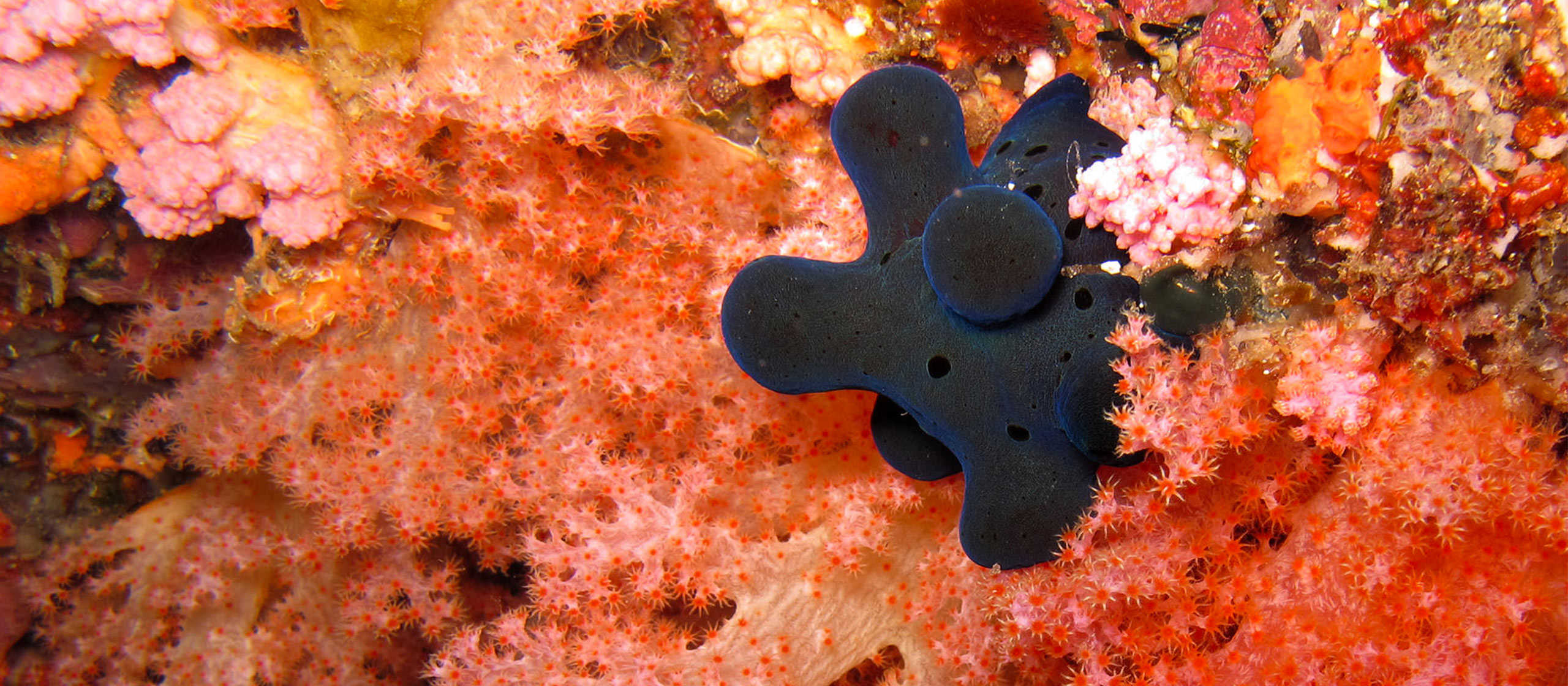Dive Travels
The 10 Best Dive Sites in the Maldives
Scattered like emerald jewels in the sapphire blue Indian Ocean, the warm waters of the Maldives are a great place to see manta rays, whale sharks and a rich array of tropical fish. Channels and pinnacles (kandus and thilas in the local language) support both heavy currents and protected coral reefs among these 1200 islands. There’s a perfect dive site for every interest and ability.
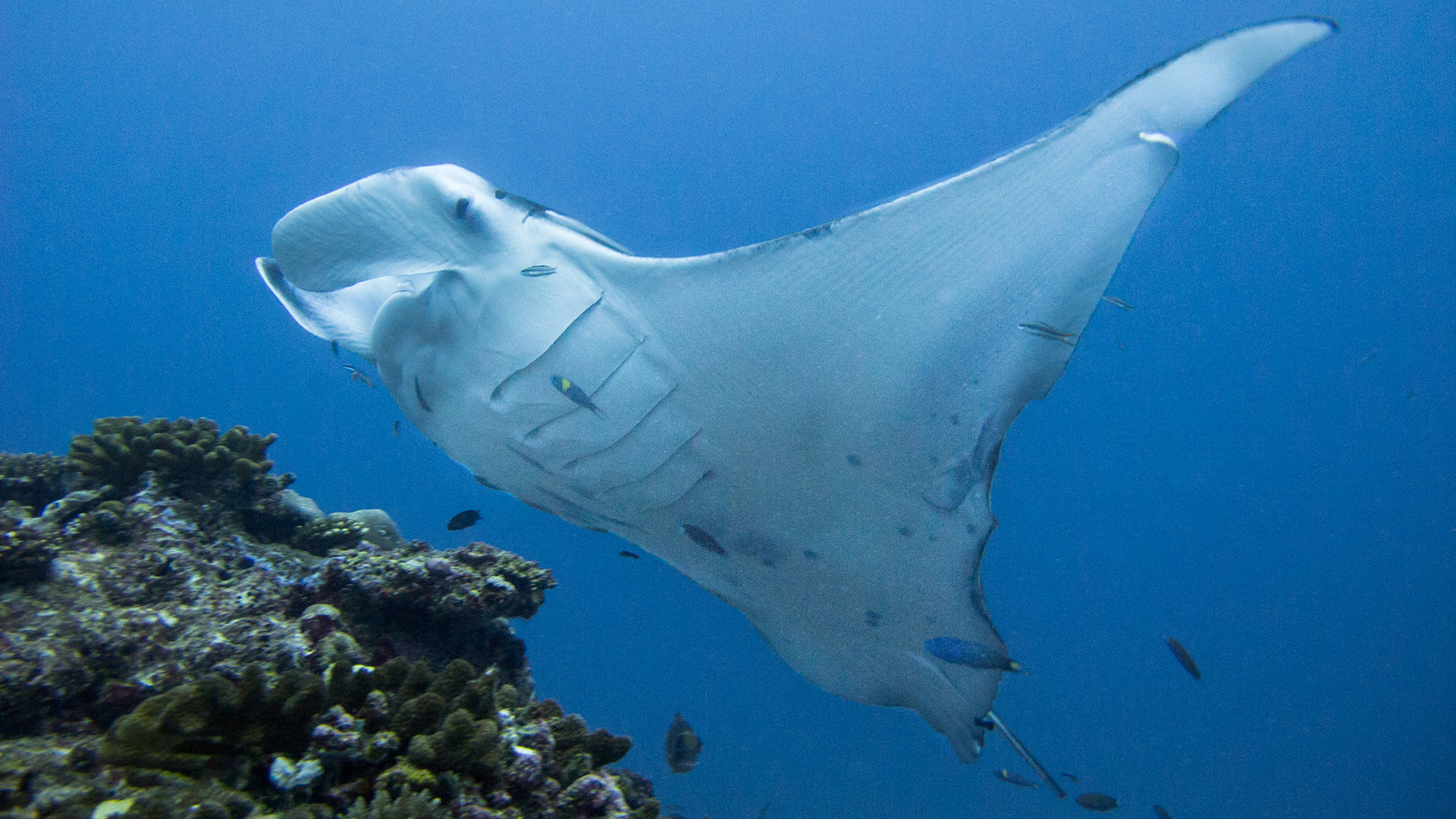
Diving in the Maldives is possible year-round, but for the most enjoyable conditions, travel between December and May is suggested. These months represent the northeast monsoon when currents favor excellent visibility and diversity of species on the more popular eastern atolls.
Below we’ve listed the ten best dive sites in the Maldives as determined by our scuba diving experts. While it’s possible to dive many of these sites individually while staying in a land-based resort, the best way to dive all the best sites in the Maldives is with a liveaboard.
1. Maaya Thila, South Ari Atoll
Day or night, Maaya Thila ranks among the best dive sites in the Maldives. This pinnacle, which starts at 20 feet (6 meters) and reaches down to 100 feet (30 meters), is home to dozens of whitetip reef sharks, a variety of stingrays, giant trevally, barracuda and nurse sharks. But the real show begins after sundown. Jumping in the water in the dark of night, you’re immediately surrounded by a feeding frenzy. Simply, swim around the pinnacle and enjoy the action!
Dive Type: Pinnacle/Night
Recommended Level: Intermediate to Advanced
Featured Creature: Whitetip Reef Sharks
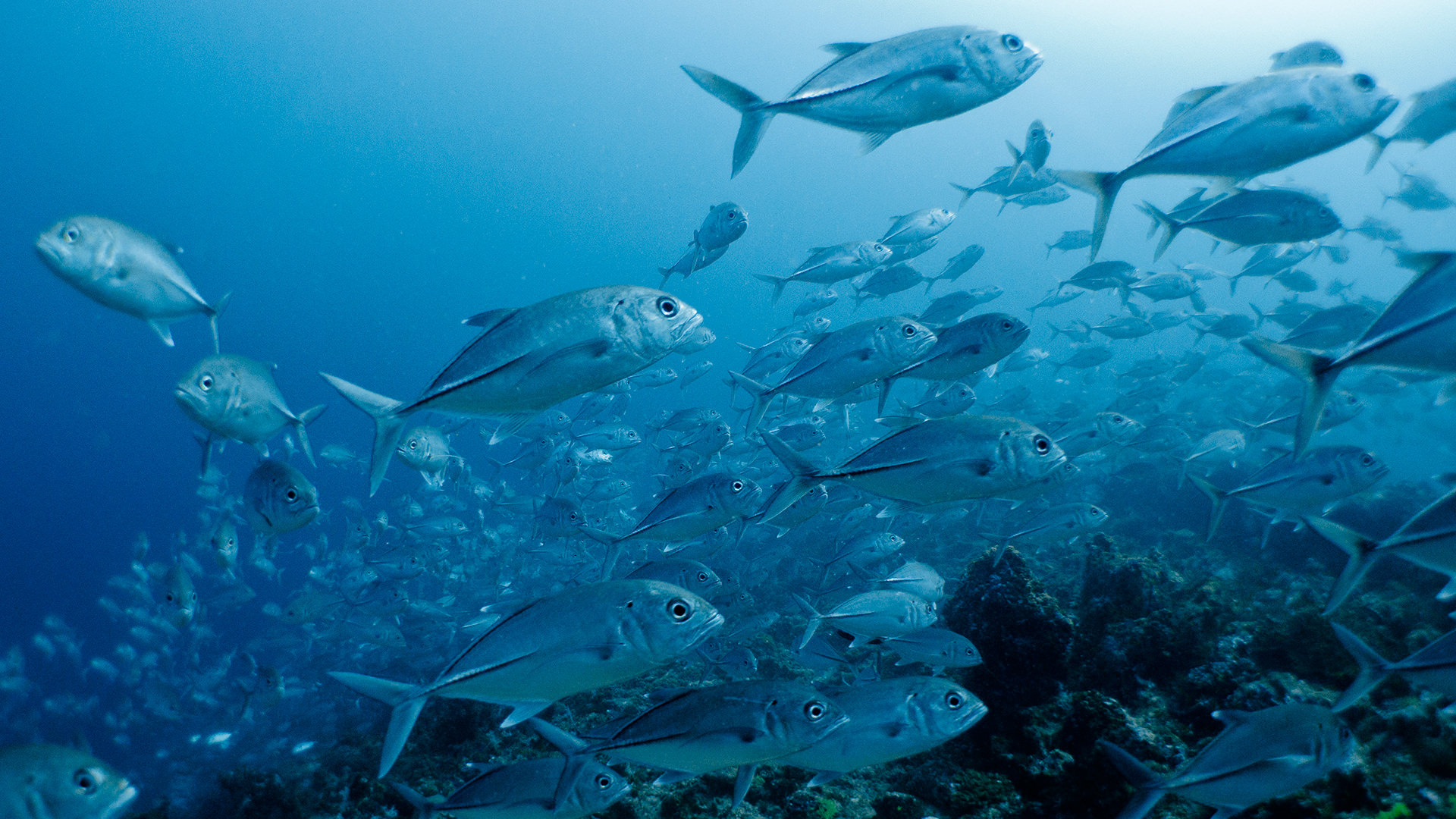
2. Sun Island, South Ari Atoll
The Maldives are one of the best destinations in the world for swimming with whale sharks. And the best place in the Maldives to find these huge fish is Sun Island. The southern shore of the island opens to the Indian Ocean and boasts a plateau of 15-30 feet (5-10 meters), making it easy to spot the whale sharks that cruise by. For the best chance at a whale shark encounter, travel to Sun Island during the week building up to a full moon. At this location, swimming with whale sharks can be enjoyed both by snorkelers and scuba divers.
Dive Type: Shallow Reef
Recommended Level: No Scuba Experience Necessary
Featured Creature: Whale Sharks
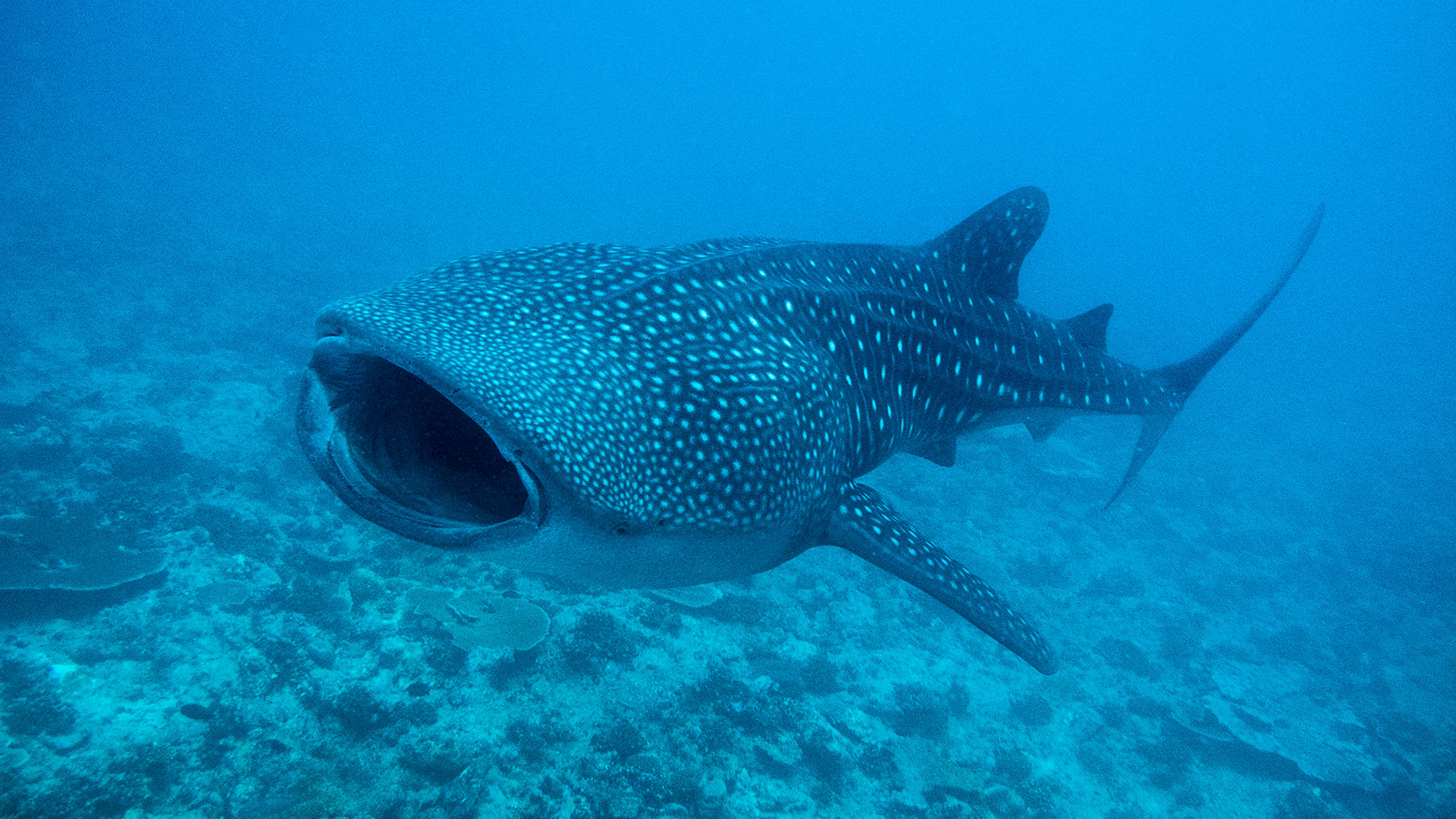
3. Broken Rock, South Ari Atoll
Located in the mouth of Dhigurashu Kandu, Broken Rock is one of the most distinguishable dive sites in the South Ari Atoll. The site owes its name to a canyon which splits the pinnacle in two. Careful divers can swim through this 165-foot (50m) canyon, noting the abundance of soft coral and sea fans lining the canyon walls. Great buoyancy is a necessity for this dive as currents in the canyon can be unpredictable.
Dive Type: Canyon/Pinnacle
Recommended Level: Intermediate
Featured Creature: Fan Corals
4. Five Rocks, South Ari Atoll
Also in Dhigurashu Kandu, Five Rocks is formed by a pinnacle that has been split into five pieces over the centuries. These “rocks” reach from 40 feet (12 meters) below sea level to 130 feet (40 meters) at the sandy sea floor. Numerous overhangs and ocean-swept currents provide the perfect environment for vibrant corals, plenty of reef fish and whitetip reef sharks. Five Rocks is a favorite among photographers for its dramatic underwater landscapes.
Dive Type: Pinnacle
Recommended Level: Intermediate
Featured Creature: Whitetip Reef Sharks, Stingrays and Red-tooth Triggerfish
5. Fish Head, North Ari Atoll
Far from land in the mid-eastern part of the atoll, Fish Head (a.k.a. Shark Point or Mushimasmingili Thila) is one of the best shark dives in the Maldives. The small pinnacle reaches down to 120 feet (35 meters) and features a number of caves and overhangs. In the past, sharks were fed in the area. That tradition has thankfully ended, but the sharks remain. Up to 16 resident grey reef sharks can be spotted on a single dive, darting around at an unsettling speed.
Dive Type: Pinnacle
Recommended Level: Intermediate to Advanced
Featured Creature: Grey Reef Sharks
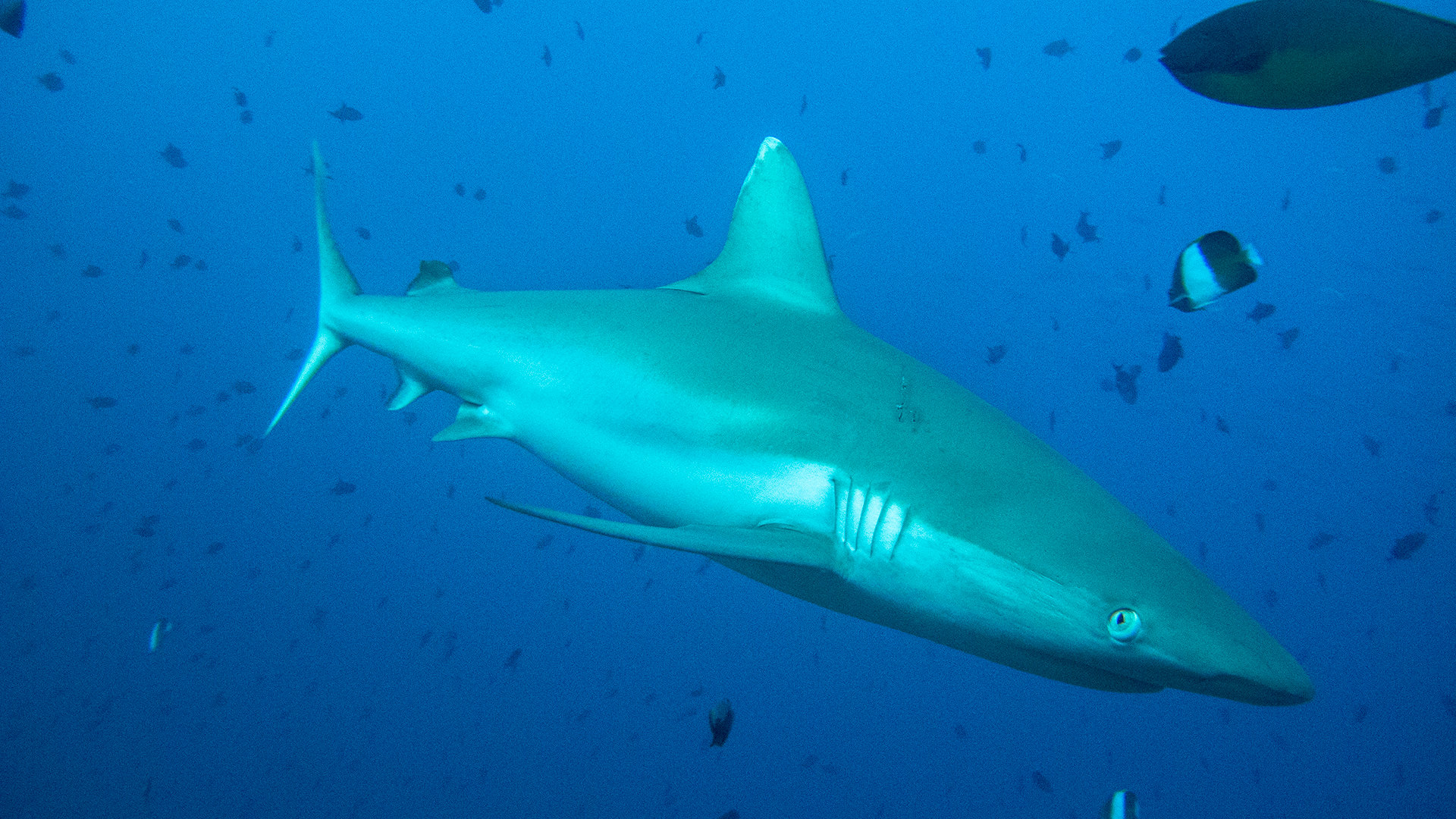
6. Miyaru Kandu, Felidhoo Atoll
This may be the best site for hammerhead shark action in the whole of the Maldives. In fact, “miyaru” means shark in the local language. During the northeast monsoon, the strong current pulls pelagic species into the channel. With the reef on your right, look into the blue and you’ll see sharks, eagle rays and dogtooth tuna.
Dive Type: Channel
Recommended Level: Advanced
Featured Creature: Grey Reef Sharks and Hammerhead Sharks
7. Banana Reef, North Male Atoll
Banana Reef is the dive site that put the Maldives on the map. Now protected by a marine area, this reef was the country’s first internationally famous site (for good reason). It boasts a bit of everything from colorful corals to caves and overhangs. Sharks and grouper as well as reef fish like Napoleon wrasse and jackfish congregate in these crystal clear water. The reef is suitable for beginners, and even snorkelers can enjoy the shallow sections.
Dive Type: Reef
Recommended Level: Beginner
Featured Creature: Sea Turtles and Napoleon Wrasse

8. Alimatha Jetty, Vaavu Atoll
Much like Maaya Thila, Alimatha Jetty is the perfect location for a night dive. For years, the Alimatha resort kitchen cleaned fish on the jetty and threw the guts into the water, effectively training local marine life to feed in the area. As the sun sinks into the water, scuba divers kneel in the sand under the jetty. Nurse sharks, stingrays and giant trevally whip up a feeding frenzy, bumping into the divers in excitement. The lights from the jetty make Alimatha a great place for night-time underwater photography.
Dive Type: Night
Recommended Level: Beginner
Featured Creature: Nurse Sharks and Cowtail Stingrays
9. Kuredu Express, Lhaviyani Atoll
Possibly the most famous dive site in Lhaviyani Atoll, Kuredu Express is so named for the heavy currents which pass along a sandy channel. At the intersection between the channel and a perpendicular reef, several terraces at various depths make great platforms to hang out and watch the action. Eagle rays, tuna, grey reef sharks, stingrays and barracuda all ride the currents. At the end of the dive, shallow colorful reefs and leaffish make decompression just as interesting as the dive itself.
Dive Type: Channel/Reef
Recommended Level: Intermediate
Featured Creature: Eagle Rays, Tuna, Grey Reef Sharks, Stingrays and Barracuda
10. Kandooma Thila, South Male Atoll
This teardrop-shaped, underwater island is approximately 1000 feet (300 meters) long, and therefore not easy to circumnavigate in a single dive. Most divers will want to focus on the west and north sides where you’ll find Jack’s Corner, a cave at 75 feet (23 meters) with blankets of soft coral and a huge school of red bass and trevally. Around the island, numerous other outcrops of rock allow for sightings of green sea turtles napping or foraging for food.
Dive Type: Wall/Cave
Recommended Level: Intermediate
Featured Creature: Green Sea Turtles
About the author:
Sandro is a globetrotter and sea lover. He’s been working as a diving instructor in various paradises around the world.
|
Whilst diving in the Maldives, always respect the underwater environment and the amazing marine life you will encounter.
In order to prevent marine life injuries, identify injuries caused by hazardous marine life and provide first aid, check out our HMLI course.
|


